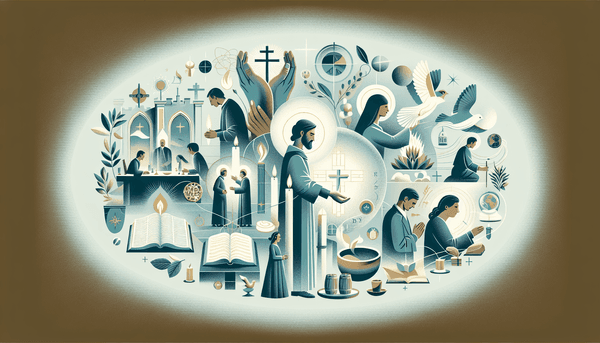The Relationship Between Jesus and Old Testament Laws
When Jesus proclaimed, 'Do not think that I have come to abolish the Law or the Prophets; I have not come to abolish them but to fulfill them' (Matthew 5:17), he was affirming his role as the fulfillment of prophetic tradition and the Law's enduring values. This powerful declaration is at the heart of Christian understanding of the relationship between the Old and New Testaments. Jesus did not negate the Old Testament teachings; rather, he brought them to completion, living out their principles and transforming them through the lens of grace and truth. Believers today are called to love God and one another (Matthew 22:37-40), uphold the moral and ethical principles of the Old Testament, and live in a way that pleases God, as emphasized by the apostles (Romans 13:8-10, Galatians 5:14).
Cultural Norms and Christian Practice
In the early Christian community, questions of cultural practice such as hair length carried symbolic weight. Paul addressed this in 1 Corinthians 11:14-15, discussing the significance of hair length in terms of honor and disgrace. Yet, these instructions were reflective of the cultural context of that time. Today, the emphasis is not on outward appearances but on the transformation of the heart and one's relationship with God. As the Bible reminds us, 'The Lord looks at the heart' (1 Samuel 16:7), suggesting that what truly defines us is not external conformity but the inward condition of our souls and our commitment to live according to God's spirit (Galatians 5:25).
Discerning God's Displeasure
Many people wonder how to recognize if God is angry with them, a concern deeply rooted in the desire for a harmonious relationship with the divine. Scripture teaches that while God is just and responds to sin with displeasure, His love is unwavering and His mercy abundant. For those in Christ, there is a profound assurance: 'There is therefore now no condemnation for those who are in Christ Jesus' (Romans 8:1), which speaks volumes about the nature of God's forgiveness and the secure position of believers. In moments of doubt, turning to the Bible for comfort and engaging in prayer are vital practices for understanding God's will and experiencing His peace.
The Mystery of the Holy Trinity
The doctrine of the Holy Trinity, one of the central mysteries of Christian faith, affirms that God exists as three persons—Father, Son, and Holy Spirit—yet is one God. This concept is not directly named in the Bible but is supported by various passages, such as the Great Commission, where Jesus instructs, 'Therefore go and make disciples of all nations, baptizing them in the name of the Father and of the Son and of the Holy Spirit' (Matthew 28:19). The Trinity is a theological attempt to describe the complex and divine relationship within God's nature, inviting believers to embrace the profundity of divine love and presence revealed through the Father's creation, the Son's redemption, and the Spirit's guidance.
FAQ
Q: Do men have to keep their hair short according to the Bible?
A: While 1 Corinthians 11:14-15 discusses cultural norms of hair length in the New Testament era, it is not a rigid command for all contexts. The Bible emphasizes the heart's condition over outward appearance, and cultural norms regarding hair have changed over time.
Q: Does Jesus make old laws obsolete?
A: Jesus affirmed the importance of the Old Testament laws and teachings but also brought a new covenant through his life, death, and resurrection. The old laws were fulfilled in him, but the principles of righteousness and justice remain relevant.
Q: Do we have to follow the laws of the Old Testament?
A: The Old Testament moral and ethical teachings remain relevant, but the specific ceremonial and sacrificial laws have been fulfilled in Jesus. Believers are called to love God and others as the summary of the law (Matthew 22:37-40).
Q: How do I know if God is angry at me?
A: The Bible teaches that God is merciful and forgiving. Romans 8:1 assures us that there is no condemnation for those in Christ Jesus. Seeking guidance through prayer and scripture can provide comfort and understanding of God's will.






